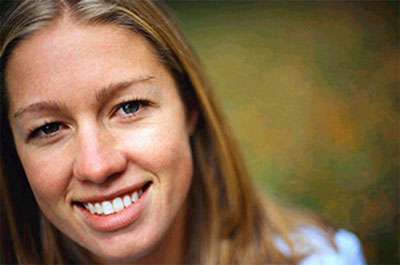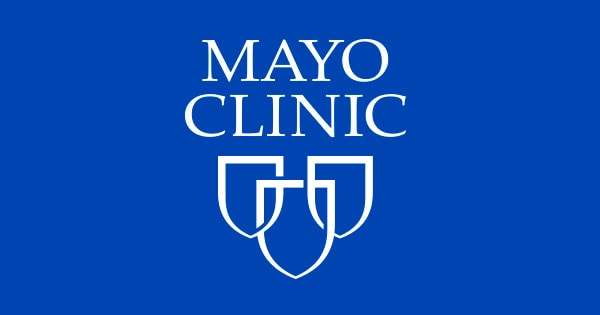
Source: cottonbro / Pexels
When I went to college to major in psychology at the University of Connecticut in 1988, I was pretty naïve. I thought that this degree led to a career as a “psychologist” and I thought that “psychologist” was synonymous with “therapist.”
Boy was I wrong! It turned out that the field of psychology was enormous and had just as many areas that focus on pure research in the behavioral sciences as there are areas that relate to therapy at all. In fact, at the end of the day, I ended up going a route that was purely research-based, getting a degree in experimental psychology (with a focus on social and personality psychology) that led to a career as a researcher and teacher at the university level. Eighteen-year-old Glenn had no idea that this all was even a thing!
In my work as a university professor, I take my role in advising students very seriously. In fact, I even wrote a book, Own Your Psychology Major! A Guide to Student Success, designed to help students know the things about the field that I only wish I had known when I was a psych major back in the day.
2 Common Misconceptions about Becoming a Therapist
When I ask psychology students what they want to be when they grow up, a good number of them, just like 18-year-old Glenn, simply say that they “want to be a psychologist.” And, also just like 18-year-old Glenn, they all seem to think that the words “psychologist” and “therapist” are synonymous. I’d say that this is probably the most common misconception about becoming a therapist: Students often conflate the concepts of “psychologist” and “therapist.”
A second common misconception about becoming a therapist pertains to the fact that students often don’t realize that there are multiple paths toward careers related to therapy. Often, I’ll hear students say that they not only want to be a psychologist, but also that they think that they need to get a doctoral degree in psychology in order to do so. In fact, if a student actually wants a career as a therapist, there are multiple master-degree-level paths that quite effectively lead toward this goal. Students are often surprised to learn this.
5 Paths Toward a Career as a Therapist
As addressed in my book, there are more than five different paths toward careers in therapy! But here are five of the most common paths that lead to such careers.
1. Mental Health Counselor (Master’s Degree Required): Degrees in mental health counseling are offered broadly at both state and private universities. These degrees, which usually take about 2-3 years to complete, typically will lead to state licensure to practice therapy and they provide students with intensive coursework and internship experience in a broad array of issues surrounding mental health and therapy. Mental health counselors have many job opportunities these days and they work for a broad array of public and private organizations.
2. Clinical Social Worker (Master’s Degree Required): Degrees in clinical social work are often offered as part of an MSW program. These degrees, which usually take about 2-3 years to complete, are offered across the U.S. at various private and public universities and they usually lead to state licensure to practice as a therapist. Licensed clinical social workers, often with undergraduate backgrounds in either psychology or sociology, practice for various public and private organizations, and the job market these days is generally quite strong in this field.
3. Clinical Psychologist (Doctoral Degree Required): Clinical psychologists have doctoral degrees and intensive training in mental health and therapeutic practices. Ph.D. programs in this field include intensive research-based work along with extensive internships. Psy.D. programs, which are also doctoral degrees, tend to focus more strictly on practice rather than research.
These degrees, which generally take about five years to complete, typically lead to state licensure and often lead to a more diverse set of opportunities compared with degrees at the master’s level. These degrees are offered typically at relatively large public and private universities. Clinical psychologists with PhDs (but typically not those with PsyDs) are also well-positioned for full-time academic careers as faculty in psychology and related departments at colleges and universities.
4. Psychiatrist (M.D. Required): Psychiatrists, who typically hold M.D. degrees, receive intensive training in both the psychopharmaceutical approach to dealing with mental health issues as well as additional therapeutic techniques. Psychiatrists, whose degrees generally lead to state licensure, are able to prescribe psychopharmaceuticals in their therapeutic approaches. They vary in terms of how much they offer additional kinds of therapy such as classic forms of talk therapy, which may be offered in combination with psychopharmaceutical treatment. Training in this area is intensive, typically including at least five years of medical school as well as intensive residencies.
5. Psychiatric Nurse Practitioner (Master’s Degree Required): Psychiatric nurse practitioner degrees are offered at various public and private universities. These degrees are degrees in nursing and include the intensive coursework and internship experiences that are found in nursing degree programs in general. These degrees typically take about three years to complete and they require all the pre-requisite course work for admission that is found in master-level nursing programs across the board. This degree usually can lead to state licensure. Further, the therapeutic offerings in this field allow for the prescribing of psychopharmaceuticals as well as various other forms of psychotherapy.
Importantly, note that there are several other kinds of degrees and paths that lead to careers that connect with therapy. Such other degrees relate to fields such as applied behavior analysis, counseling psychology, school psychology, and school counseling, to name a few.
The Future of the Field
These days, the mental health industry is growing. On one hand, this is problematic and a bit sad because it speaks to a growing rate of mental health problems, especially in industrialized nations such as the US (see Strivastava, 2009). This said, this trend also means that there are lots of career options in the field of mental health. So there are lots of opportunities for psychology majors to make a positive difference as they advance in their careers.
To work in a career that includes therapy, you don’t necessarily need a doctoral degree. And you don’t necessarily need a degree that is formally in the field of “psychology”—in fact, students usually find that there are more career options on this front than they tend to realize.
Hopefully, this post has been helpful in providing guidance toward the various careers related to therapy. If you’re a psychology major, from New York to California, or anywhere in between, I say work hard, take advantage of opportunities offered by your school, work toward the common good, and good luck! And don’t hesitate to contact me if you have any questions.
To find a therapist, visit the Psychology Today Therapy Directory.
LinkedIn image: Prostock-studio/Shutterstock
How to become a Counsellor or Psychotherapist in Canada?
Research shows what clients have always known… when it comes to providing mental health services, level of education does not always equate to positive results. “Genuineness and empathy” by the counsellor have been identified as the most important indicators of therapeutic benefit.
Most practitioners will tell you that for them, the process of becoming a counsellor or therapist began in childhood and evolved into a life-long calling. Curiosity and genuine concern for others influenced the way they interact with the world. This innate drive to help others, combined with specialized training, and supervised experience led to their ultimate career goal.
For those of you who are contemplating a career as a counsellor, addictions worker, or psychotherapist, please read on from here. The information on this page will clarify the differences and similarities for these areas of specialization. (NOTE: In addition to these professional classifications, there are other career options available in the mental health field. Click here for details: Educational Requirements and Career options in the Mental Health Field.
Characteristics of effective mental health practitioners
Regardless of their training and experience, the following personal characteristics shared by professional counsellors, addiction workers, and psychotherapists are indicators of successful practice:
- Comprehensive training in theories and techniques.
- Hands-on supervised experience.
- A basic curiosity to learn and understand human dynamics.
- Self-awareness of strengths and weaknesses. Knowing who you are is the most important instrument you possess as a helper.
- A genuine caring and nonjudgmental acceptance of others.
- Willingness to stick with clients through the often times slow process of change without imposing your own visions and values on them.
- The ability to instill hope in disillusioned clients.
- Flexibility in applying strategies for change and adapt your techniques to the unique situations of each client.
- Respect for clients from different ethnic or cultural backgrounds.
- Ability to practice self-care physically, mentally, spiritually, socially, and psychologically.
- When confronted with difficult situations, know when to seek supervision or make an appropriate referral.
- And continue to engage in self-examination of your own needs, issues, beliefs, and values.
Adapted from Corey & Corey, Becoming a Helper, (2003).
Similarities and difference between Counsellors and Psychotherapists
The roles of counsellors, addictions workers,and psychotherapists overlap in several contexts. All require interacting with clients using knowledge and skill to produce predictable therapeutic results. Interactions by the counsellor and psychotherapist are based upon ethical and recognized treatment strategies to help clients alleviate cognitive and emotional distress. Both professionals may qualify for designation as mental health providers through various professional associations and regulatory colleges.
The primary differences in skill level between these specializations involve; severity of clients’ symptoms; length and depth of treatment; and the scope of the practitioner’s training and clinical experience.
A professional counsellor typically treats common mental health issues that are less severe and shorter in duration than those that require psychotherapeutic interventions.
An addiction counsellor is a multi-faceted counsellor whose scope of practice focuses on treatment of addiction-related disorders.
A psychotherapist requires in-depth training and supervised experience to treat severe dysfunction related to long term mental health disorders.
What do professional counsellors do?
Professional Counsellors treat clients who are experiencing symptoms that cause mild impairment in cognitive, emotional or behavioral function; are marginally functional in most areas of life; and clients who wish to enhance their personal growth or productivity. Entry-level counsellors find employment in setting such as private practice, community clinics, businesses, crisis intervention, hospice, to name a few. The counsellor selects and applies appropriate treatment strategies based on recognized psychological theories, anticipates the outcome, and responds competently to situations such as:
Addictions Counsellor
The many roles of an Addiction Counsellor
In addition to the clinical skills demonstrated by professional counsellors, an addiction counsellor is trained in aspects related to substance or behavioral addictions: such as recovery, assessment, treatment, management, and relapse prevention. Counselling is conducted individually and/or in group therapy.
Typical Job Duties of an Addiction Counsellor
Job duties addiction counsellors typically encounter in private practice, hospitals, community clinics, residential treatment centers, group homes, schools, and correctional institutions:
Scope of Practice of an entry-to-mid level Psychotherapist
The entry-to-mid level Psychotherapist uses advanced assessment skills, psychotherapeutic techniques and in-depth knowledge to treat disorders of thought, cognition, mood, and perception causing serious impairment of judgment, behaviour, and/or social functioning.
Mental health practitioners who wish to incorporate psychotherapeutic techniques into their scope of practice are expected to pursue advanced training and supervised experience. Certain provinces impose restrictions on the practice of psychotherapy, so check with your home province for regulations that may apply.
The job portfolio of a Psychotherapist typically includes the following:
In addition to basic counselling skills, and advanced knowledge in the application of competencies required for the practice of psychotherapy the following are also included:



